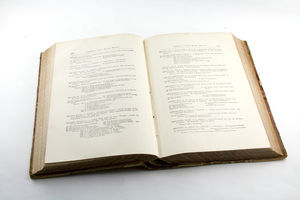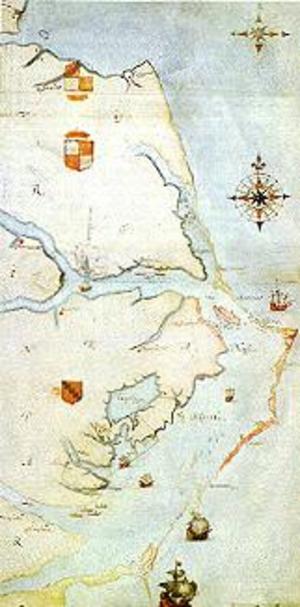One fact usually missing from school texts about New Hampshire is the winding path to the state’s present name.
The current moniker was selected by Captain John Smith — of Virginia fame — to commemorate his own English county of Hampshire. However, according to the official New Hampshire web site, the area was initially named North Virginia and was once under the jurisdiction of Massachusetts.
The colony began in 1623 with the arrival of some fish merchants from London who were accompanied by other settlers. Its settlement had nothing to do with religious persecution in England.
During the Revolutionary War, King James changed the name “New Virginia” to “New England.” This name persisted until Smith renamed the area. New Hampshire was actually the first of the original 13 colonies to declare its independence from England, according to 50states.com. Called “The Granite State,” its motto is “Live Free or Die.”
While New Hampshire might be small in size – 46th out of the 50 U.S. states in land area and 41st in population – it’s a state of dozens of firsts. A Concord inventor, Lee Hutchins, came up with the first alarm clock in 1787. The State House is the oldest state capital in which a legislature continues to meet in its original chambers. Because they were leaders in the revolutionary effort, New Hampshire delegates were honored by being the allowed to be the first to vote for the Declaration of Independence on July 4, 1776.
New Hampshire is also the only state to play host to the formal conclusion of a foreign war. At the end of the Russo-Japanese War in 1905, the treaty was executed at Portsmouth.
Potato lovers can thank a farmer in New Hampshire for planting the first potato cultivated in the United States. And Alan Shepard Jr., the first American to travel in space, hailed from the town of East Derry.
Among other firsts was the first free public library in the country, established in Peterborough. In 1963, New Hampshirites adopted the first legal lottery in the 20th Century. And the community of Wolfeboro is known as the oldest summer resort in America.
On June 21, 1788, New Hampshire became the ninth state to enter the Union. Its capital is Concord. It’s bordered by Quebec, Maine, the Atlantic Ocean, Massachusetts and Vermont. The state has 10 counties, 13 municipalities, 221 towns and 22 unincorporated areas. In addition to really harsh winters, it’s noted for gorgeous Fall foliage, maple syrup and glass blowing.
New Hampshire tourists will want to plan quite a few stops. Salem is home to Mystery Hill and the site of America’s Stonehenge, a 4,000-year-old megalithic natural structure. The Concord mansion of former President Franklin Pierce is also a popular attraction. The Cornish Hill Pottery Company still handcrafts functional stoneware in Early American styles by using a process known as “slip trailing.” The granite profile “Old Man of the Mountain” is a famous natural attraction measuring 40 feet from chin to forehead. It’s located 1,200 feet above Echo Lake.
History buffs will want to investigate the former Enfield community, 1 of 18 Shaker villages, and the Christa McAuliffe Planetarium in Concord, commemorating the late teacher who died in the explosion of the space shuttle Challenger.
New Hampshire claims quite a few other famous Americans. They include statesman Daniel Webster, journalist and politician Horace Greeley, religious leader Mary Baker Eddy, Supreme Court Justice David Souter and jurist Salmon P. Chase. Writers Dan Brown, Robert Frost, John Irving, Christopher Lowell and J.D. Salinger have called it home. Entertainers Aerosmith, Adam Sandler, Sarah Silverman and Brian Wilson also hail from New Hampshire.
Reference:
- New Hampshire web site



